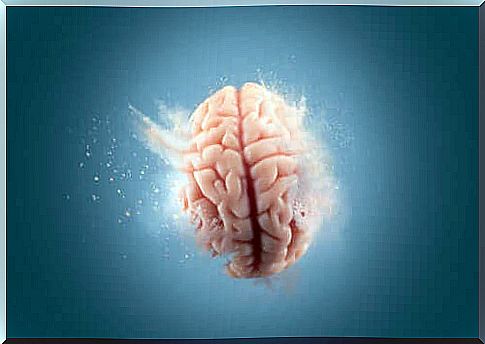The Effects Of Cocaine On The Brain

The effects of cocaine on the brain are devastating. It is the second most used drug in the world and has been a health problem since the 1980s.
The substance, which comes from the coca leaf plant, induces feelings of euphoria, energy and mental alertness in those who consume it. It also reduces their appetite and need for sleep.
In addition to these short-term effects, cocaine use also has long-term effects, such as emotional and behavioral disorders. Read on to discover cocaine’s major effects on the brain at an anatomical, metabolic and functional level.

Anatomical and Metabolic Effects
This substance affects the noradrenergic and dopaminergic systems of the brain. In particular, it promotes the release of noradrenaline, while inhibiting the reuptake of serotonin, dopamine and noradrenaline at synapses.
In the space between the communication of two neurons, also called the synaptic cleft, the availability of these neurotransmitters is thus much greater.
This effect leads to a series of long-lasting changes in the brain. In post-mortem studies, scientists found that the brains of cocaine users had a lower amount of dopamine in the striatum.
Also a lower density of monoamines and the expression of the RNA encoding the dopamine transporter. In addition, there is an increase in microglia and macrophages. This means that cocaine use is related to a loss of dopaminergic terminals, as well as whole neurons.
This cellular damage creates reward pathways, of which the dopaminergic pathway is a part. It changes its functionality and leads to compulsive use. Also, the diminishing presence of natural dopamine, a hypodopaminergic state, is the cause of withdrawal, depressive and craving symptoms.
Scientists have also found that the use of cocaine and other substances increases the presence of free radicals and oxidative stress. These are necessary, of course, but are an integral part of aging and cell damage.
In addition, they disrupt the functioning of the blood-brain barrier. It is essential for the protection of the brain against harmful substances from the outside and the maintenance of homeostasis.
Cocaine use is also directly related to effects on the cerebral vasculature, making the occurrence of a stroke more likely. There is also an increase in tumor necrosis factor.

Functional Effects of Cocaine on the Brain
The changes and damage mentioned above have a series of consequences for the neuropsychological functioning of the users. In general, cocaine users perform poorly on neuropsychological assessments. These effects manifest themselves in, among other things:
- attention
- memory
- inhibition of reaction
- executive functions
More specifically, cocaine affects the following processes:
- selective and sustained attention
- random access memory
- visual memory
- learning ability
In fact, these effects are more apparent during withdrawal periods.
In terms of executive functions, cocaine users have more problems inhibiting reactions. They are also more impulsive and less adept at making decisions. This is also linked to less flexibility with changes and a lower ability to handle errors and handle incidents.
In short, cocaine use, arguably the most addictive drug, affects consumers on many levels. In addition to the effects described here, there are many emotional, behavioral, and social consequences that affect a person’s quality of life.









